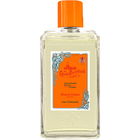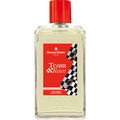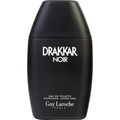In this series dedicated to fresh, citrusy colognes, I have so far focused on German and French ones, and to a lesser extent on Italian, Turkish, and Czech colognes. There are still (at least) two major cologne nations missing, England and Spain, which I would like to turn my attention to now.
I am delighted to start with Spain, as my relationship with this country is akin to truly good friendships or great love: it only takes a little fuel to ignite a bright fire. I have been to Spain very rarely, but I remember the few visits, even if they were decades ago, almost minute by minute and always with great joy (unlike many other trips). I learned a bit of Spanish very briefly, but what little I know has stuck with me, and the hard sound of the language is like music to me. I have hardly read any Spanish literature, and mostly unusual books, but the few works I have read have always touched me deeply (Calderón, Baltasar Gracián, Jorge Guillén, for example). The list could go on. Therefore, it cannot be ruled out that this commentary is colored by "positive prejudices": perhaps it would have only received 8.5 points if the fragrance came from Tajikistan (hey, you Tajiks: just kidding!).
This "Colonia Concentrada" (I have no idea what "Cologne Concentrée" actually is and what the difference is to an Eau de Toilette) is, as can be gleaned from other comments and internet research (especially on the manufacturer's website: https://alvarezgomez.com), the classic of the Alvarez Gomez house; and the Alvarez Gomez house is supposedly the Spanish original colognist, so to speak, the Farina of the Iberian Peninsula. According to the official company history, three young cousins from northern Spain set off for Madrid to seek their fortune, apprenticed with an old druggist, and took over the shop when he retired without an heir. A traveler pointed out to them that in Germany and France, they used "Kölnisch Wasser," a refreshing water made from citrus and herbal scents. The cousins then said to themselves: In this heat, Madrid is a much better market for this than Cologne, and the best lemons grow right here at our doorstep. And so, in 1912, this fragrance was developed, which has supposedly remained unchanged since then, and which you can find in Spain along with the corresponding soap, shower gel, and whatever else, thrown at you on every corner, and of which there are numerous flankers and side products (like an after-shower body splash, a "Cologne for Babies," and an orange flanker) that are not even listed in the Parfumo database. In Germany, "Agua de Colonia Concentrada" is only available through a few online perfumeries, in a 400-ml splash bottle or in a handbag-compatible compact 80-ml sprayer. It’s not free, but still very reasonably priced.
Alvarez Gomez Agua de Colonia Concentrada opens with a wonderful, spicy, rich dark yellow, extremely lively lemon note, to which foreign hesperidics (especially bergamot and orange) seem to be only minimally added. This lemon scent truly smells like hand-picked, perfectly balanced aromatic organic lemons from a market stall in Madrid, where even top chefs shop (especially for the peel and the oil). Quickly, a strong, but never too forward, shot of fine, powdery lavender joins in. Next, perhaps after about ten minutes, I sense massive herbs and spices; both green (rosemary and especially thyme are plausible), as well as, as Fittleworth also noticed, unspecified "brown" ones (clove and perhaps also anise). Nevertheless, the fine-spicy, highly aromatic lemon oil scent remains prominent, which is why this cologne never turns into a spice cologne in the style of "Tabac Original," but always remains "yellow" at its core.
I do not perceive the rose geranium that disturbed Turandot at all, which is certainly my fault. What puzzles me is the eucalyptus, which is prominently listed among the fragrance notes, indicating that many perfumistas perceive it as particularly strong. I do not detect a specific eucalyptus scent (in the style of cough drops, camphor, etc.) at all. The trace of eucalyptus I can at most recognize in the enormous fresh radiance, in a certain green-spicy note, and in the high longevity of the fragrance (currently about 20 degrees, lasting about 1-2 hours with noticeable projection plus 2-3 hours close to the skin).
Due to the strong herbal note, Agua de Colonia Concentrada has a somewhat bitter, gnarly quality that makes the fragrance seem rather masculine at first. However, it has been perceived as unisex for over 100 years and, as the comments from Palonera and Florblanca show, also has very feminine admirers. I am sure that works. 20 million Spanish women cannot be wrong. At the same time, and in a certain tension to this gnarliness, this Alvarez Gomez radiates something very clear, bright, and cheerful; one immediately wants to hop through herb fields and throw lemons at oneself. Therefore, the label, which radiates both playful cheerfulness and nostalgia, fits the fragrance very well.
The wonderful, long-lasting interplay of aromatic, rich lemon and harmoniously associated, equally strong herbs and spices makes this cologne unmistakable for me. It proves that within the (supposedly) narrow confines of the genre "citrus cologne," entire continents lie waiting to be explored!
Updated on 05/31/2020
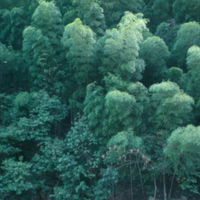











 Lemon
Lemon Eucalyptus
Eucalyptus Bergamot
Bergamot Lavender
Lavender Rosemary
Rosemary Geranium
Geranium Thyme
Thyme




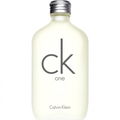








 Darkbeat
Darkbeat JFP26
JFP26 BertolucciK
BertolucciK Stamatios
Stamatios Lalbino
Lalbino Matux
Matux Cumulnimbus
Cumulnimbus Turgenev
Turgenev MsAd89
MsAd89 KingPin
KingPin





